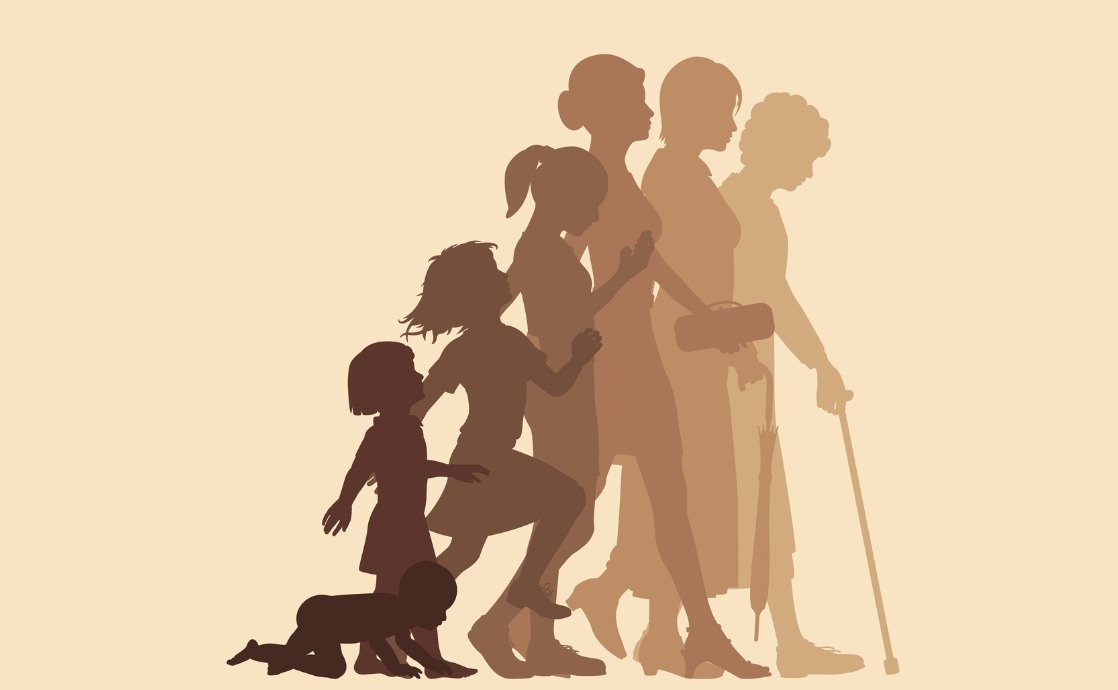The trajectory of aging is often envisioned as a dual path, one adorned with burdens and the other with blessings. In the context of Baha’i teachings, the spiritual insights surrounding the process of aging illuminate the intricate interplay between these two facets, offering a profound understanding of the human experience. The very essence of Baha’i philosophy revolves around the development of the soul and fosters an acceptance of the inevitable changes that accompany the passage of time.
At first glance, aging is frequently perceived through a lens of lamentation. The physical decline, the sharp edges of memory dulling, and the malaise that sometimes accompanies the autumn of life can engender a sense of weariness. Yet within this narrative lies a rich tapestry of spiritual growth and insight. Baha’i teachings encourage us to perceive aging not solely as a diminishing phase but as an enriching journey towards spiritual ascension.
The metaphor of the garden serves as a compelling illustration of the aging process. Just as a garden requires nurturing, attention, and, at times, rigorous pruning to flourish, so too does the human spirit necessitate care through each stage of life. In the earlier years, one may be preoccupied with planting seeds—pursuing education, establishing careers, and forming relationships. However, as one transitions into the later seasons of life, the focus shifts toward harvesting those seeds—the wisdom acquired, the experiences shared, and the legacies left behind.
This transition from planting to harvesting evokes a recognition of the blessings that accompany aging. In the Baha’i faith, age is celebrated as the embodiment of experience and wisdom. The teachings emphasize that older individuals hold invaluable perspectives, having traversed the vicissitudes of life. This accumulated knowledge serves not merely as a personal treasure but as a communal asset, contributing to the collective well-being of society. The metaphorical ‘fruit’ of wisdom becomes a source of nourishment for the younger generations, bridging the gap between ages and fostering intergenerational unity.
However, the blessings of aging are often tempered by burdens that require acknowledgment. As individuals traverse this complex landscape, they may encounter the challenge of societal perceptions of aging, which frequently skew towards negativity. Indeed, the ethos of youthfulness perpetuated by modern culture can cast a shadow on the dignity of the aging process. Yet, in confrontational paradox, Baha’i teachings remind adherents that the intrinsic value of human life does not diminish with age; rather, it evolves, taking on new significance and deeper layers.
This evolution can be likened to gold being refined in a crucible. The heat symbolizes the trials and tribulations faced throughout life, while the eventually purified gold represents the soul’s growth and maturity that emerges untainted from adversity. Aging, then, becomes not just a passage through time but a transformative journey towards spiritual enlightenment.
Integral to the Baha’i framework is the notion of service, particularly the service afforded to others in one’s later years. The burdens of aging can often lead to feelings of isolation or disenfranchisement, yet active engagement in one’s community can alleviate these sentiments profoundly. By offering one’s wisdom, volunteering, or nurturing younger generations, aging individuals translate their life experiences into acts of compassion and altruism. This invigorating engagement serves dual purposes: it mitigates the burdens of aging while simultaneously multiplying the blessings. It fosters a cycle of giving and receiving, where the aged pass on gifts of knowledge and insight, and in return, they receive renewed purpose and connection.
Furthermore, the exploration of aging through the Baha’i lens invites a reevaluation of the narratives we construct about life progression. The linear progression from youth to old age is often a social construct imbued with preconceived notions regarding productivity, value, and success. In contrast, Baha’i teachings advocate a more circular understanding of time and existence. Each stage of life contributes uniquely to the individual’s spiritual journey, culminating in a profound existential understanding that transcends conventional benchmarks of success.
To embrace the burdens of aging is to face the inevitability of mortality. Yet, confronting this reality does not strip life of its vibrancy; instead, it imbues it with urgency and intention. In a Baha’i perspective, acknowledging life’s temporality is fundamentally liberating. It affords space for reflection, gratitude, and growth, allowing individuals to leverage their limited time for maximum spiritual impact. This paradigm shift redefines the burdens of aging, transforming them into motivators for deeper engagement with one’s life purpose.
In summation, the Baha’i conception of aging weaves a narrative that transcends simplistic dichotomies of burdens and blessings. By recognizing aging as a path toward spiritual refinement, a conduit for intergenerational wisdom, and an opportunity for service, one can cultivate an appreciation for this inevitable aspect of existence. Thus, the journey of aging, akin to a richly tended garden, reveals its most profound fruits not merely in the years lived but in the legacy of love, wisdom, and service bequeathed to future generations.
